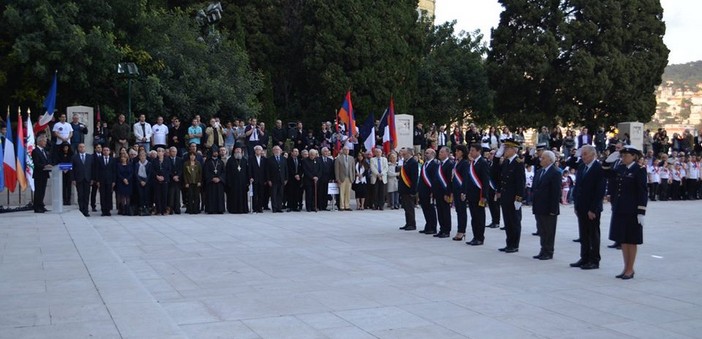On the occasion of the 100th anniversary of the Armenian genocide, France wanted to mark the centenary with particular solemnity, with the President of the French Republic traveling to Yerevan, alongside the President of the Republic of Armenia.
By the law of January 29, 2001, France publicly acknowledges the Armenian genocide of 1915.
In Nice, at the Monument to the Dead, civil, military, and religious authorities, associations, and a large audience, particularly composed of representatives and members of the Armenian community in Nice, commemorated this anniversary.
Prefect Adolphe Colrat wanted to recall the President’s statement made before the coordinating council of Armenian organizations in France on January 28:
“The destruction of a people always begins in the same way. By the destruction of its spirit, its culture, by the denial of its knowledge and the men and women who embody it. But then, unfortunately, the process is well established. Women, men are murdered, murdered because they are Armenians, murdered because they are Jews, murdered not because they belong to an organized society, a profession, or a culture, but because they are what they are.”
Thus, Armenians were murdered, the men first, then those who remained were chased, taken, deported to Syria.
Thus, it was the first genocide of the 20th century, not the last, as Pope Francis recently reminded us. A common characteristic of genocides is the denial, as we have seen in the latest statements from Turkish leaders.
Strange parallelism! There is an attempt to make us believe that the crimes committed did not exist, or at the very least, that the wrongs were shared.
However, the representative of the State wanted to go further in his concluding remarks: “What unites us this evening is certainly not hatred, but the memory lived as a duty. Yet, at this moment, we first have a fraternal thought for all the victims of this barbarity, for the Armenians of 1915, and for the Armenians of 2015, who carry them with indestructible fidelity and intact emotion in their hearts.”


